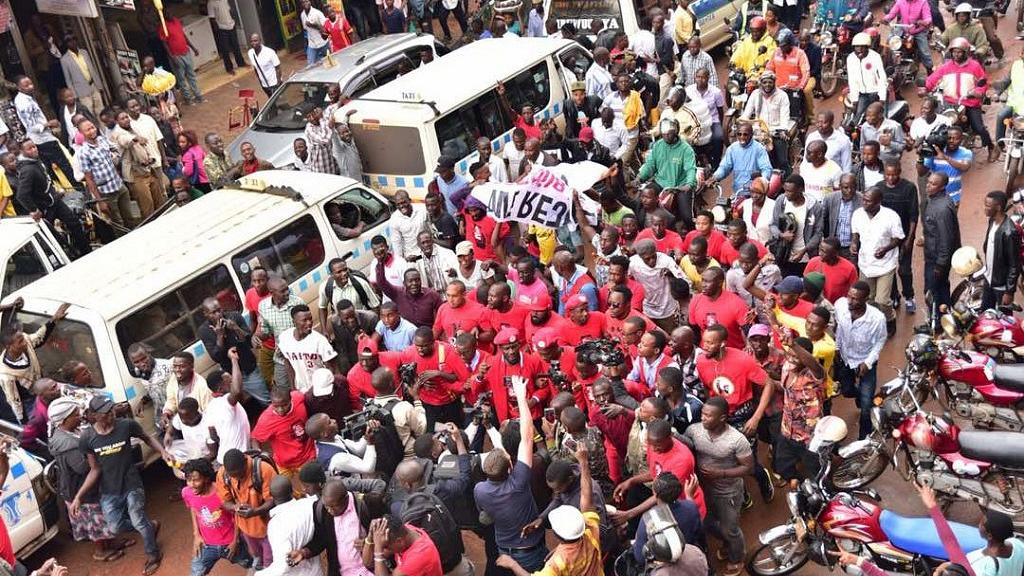
Uganda reviews unpopular social media tax following protests
Uganda is reviewing its decision to impose taxes on the use of social media and on money transactions by mobile phone, following a public backlash.
Prime Minister Ruhakana Rugunda made the announcement soon after police broke up a protest against the taxes.

On Wednesday, a crowd of about 200 people wearing red T-shirts and shouting “power, power!” marched through downtown Kampala was dispersed after police tried to arrest an independent lawmaker critical of President Yoweri Museveni, a Reuters witness said.
Wednesday’s rally was led by singer and parliamentarian Bobi Wine — real name Robert Kyagulanyi — whose election last year was fueled by social media.
“We set out to show our displeasure at the social media and mobile money taxes. We had informed the police of our intention to march and so we are dismayed at the use of brute force and live ammunition to break up a peaceful protest,” said one of the organisers, prominent television journalist Raymond Mujuni.
Two of the new taxes, one on access to social media and a second on transactions on Mobile Money, have both stoked widespread outrage from telecom firms’ customers.
Mobile Money is a cell phone-borne service popular in Uganda and across East Africa and is used to transmit cash between individuals and effect payments for goods and services.
President Yoweri Museveni had pushed for the taxes to boost government revenue and to end “gossip” on WhatsApp, Facebook and Twitter.
Critics accused the 75-year-old of trying to stifle dissenting voices.
The Ugandan government blocked access to Facebook, Twitter and WhatsApp during the last general election in 2016, a move used by other entrenched rulers in Africa in response to grassroots movements against them.
Patrick Onyango, deputy spokesman for Police told Reuters security forces used teargas to break up the demonstration.
“We used teargas to disperse their illegal demonstration and we have also arrested three protesters,” he said.
Onyango said the demonstrators had failed to seek police clearance for the protest.
Ugandan public order management law requires organisers of protests to seek police permission which is often denied.
Under the new tax laws every online Ugandan has to pay 200 shillings ($0.0532) daily to be able to have access on so called over the top (OTT) platforms.
The OTTs targeted by the new tax include Facebook, Twitter, Google Hangouts, YouTube, Skype, Yahoo Messenger, WhatsApp and many others.
Some Ugandans have also said the tax on mobile money will render use of the service costly, deter customers and kill jobs.
Relations between governments and social media companies are widely watched in Africa, where rapidly growing mobile internet connection is hailed by human rights groups as an essential tool of political and economic development.






